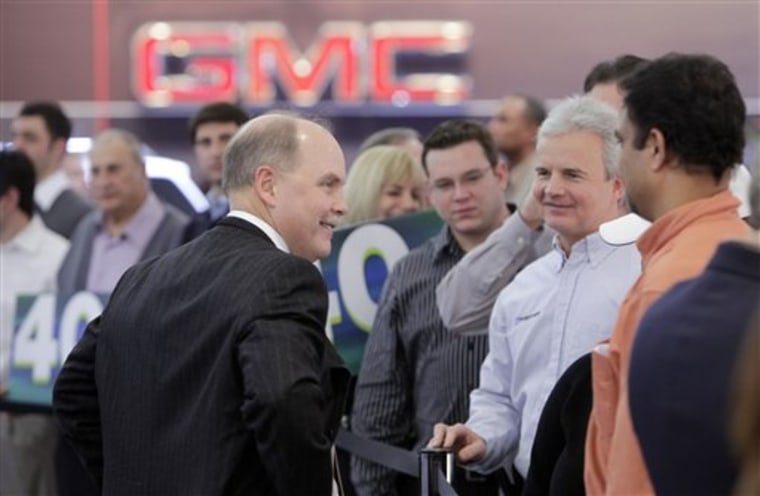General Motors Corp.’s chief operating officer wouldn’t say Monday whether GM will need all $18 billion in government loans it sought from Congress, but he said GM’s worst-case scenario would require more than the $13.4 billion already allocated by the Treasury Department.
Speaking to reporters at the North American International Auto Show in Detroit, Fritz Henderson said GM’s emphasis is on making the Detroit automaker viable, showing that it can bring in more cash than it spends and repay what it has borrowed.
The worst-case scenario GM presented to Congress in December involved a U.S. market in which 10.5 million vehicles are sold a year. That matches what several analysts are predicting after poor consumer confidence and tight credit helped U.S. auto sales fall to 13.2 million vehicles last year, from 16.1 million in 2007.
Auto consulting company CSM Worldwide said Monday it expects U.S. vehicle sales to hit a 27-year low of 11.5 million in 2009 but rebound to 13.6 million in 2010.
Henderson said he is confident GM will work out concessions from the United Auto Workers that are required under the government’s loan terms. GM, Chrysler and the union have been talking about labor cost reductions and other changes to their contracts.
The companies have until Feb. 17 to hammer out amendments to their current labor contracts that would bring worker costs in line with those of employees at foreign auto companies’ plants in the U.S.
UAW President Ron Gettelfinger has said the union will approach President-elect Barack Obama’s administration to end what he called unfair requirements in the loan terms for concessions from the union.
U.S. Rep. Barney Frank, D-Mass., has proposed getting rid of a requirement that GM and Chrysler negotiate labor cost parity with foreign-owned automakers that have U.S. factories.
But Henderson said the uncertainty over what concessions are required doesn’t mean the company and union aren’t talking about labor cost gaps.
“We know what those costs are just like they do,” he said.
Hourly wages for UAW workers at GM factories already are about equal to the average of $30 per hour Toyota Motor Corp. pays at its older U.S. factories, according to the companies. But including benefits and the cost of providing health care to retirees, the Detroit automaker says its total labor cost is around $69 per hour, compared with an all-inclusive cost of $53 per hour at Toyota.
GM’s total cost will drop to $62 per hour in 2010 when a UAW administered trust fund starts paying retiree health care costs, with the remaining difference due to the “legacy” costs of century-old GM paying its retiree pensions.
Other items that are on the table include payments and benefits to laid-off workers. The union has agreed to end the “jobs bank” program under which laid-off workers can receive about 95 percent of their pay and benefits for years, but the government’s plan calls for the companies to eliminate other payments that supplement state unemployment benefits immediately after a layoff.
The plan also calls for the UAW to take company stock instead of cash for half the payments into the union-run health care trust.
